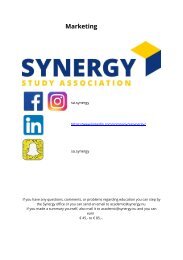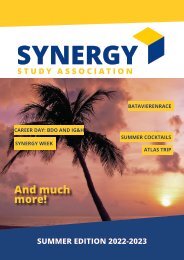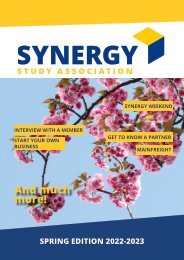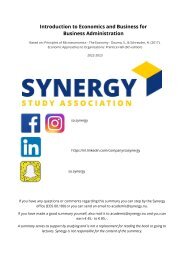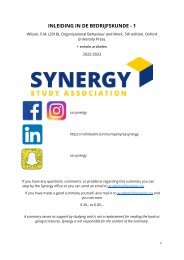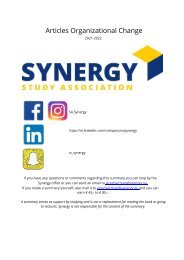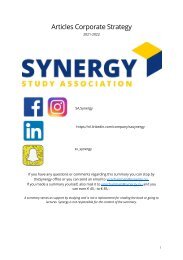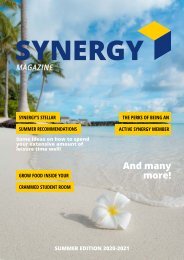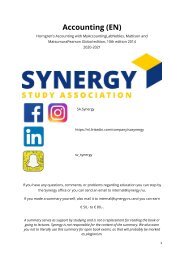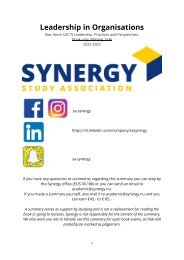Create successful ePaper yourself
Turn your PDF publications into a flip-book with our unique Google optimized e-Paper software.
1. When a company receives an advance payment, it debits Cash <strong>and</strong> credits a current liability<br />
account identifying the source of the unearned revenue.<br />
2. When a company recognizes revenue, it debits the unearned revenue account <strong>and</strong> credits a<br />
revenue account.<br />
- Most countries have a consumption tax. Consumption taxes are generally either a sales tax or a<br />
value-added tax (VAT). The purpose of these taxes is to generate revenue for the government<br />
similar to the corporate or personal income tax. Value-added tax is placed on a product or<br />
service whenever value is added at a stage of production <strong>and</strong> at final sale. An advantage of a AT is<br />
that it is easier to collect than a sales tax because it has a self-correcting mechanism built into the<br />
tax system. A disadvantage of a VAT is the increased amount of record-keeping involved in<br />
implementing the system.<br />
- Companies also report as a current liability amounts owed to employees for salaries or wages at<br />
the end of an accounting period. In addition, they often also report as current liabilities the<br />
following items related to employee compensation.<br />
1. Payroll deductions → The most common types of payroll deductions are taxes, insurance<br />
premiums, employee savings, <strong>and</strong> union dues. To the extent that a company has not remitted the<br />
amounts deducted to the proper authority at the end of the accounting period, it should<br />
recognize them as current liabilities.<br />
2. Compensated absences → Compensated absences are paid absences from employment –<br />
such as vacation, illness, <strong>and</strong> maternity, paternity, <strong>and</strong> jury leaves. Vested rights exist when an<br />
employer has an obligation to make payment to an employee even after terminating his or her<br />
employment. Accumulated rights are those that employees can carry forward to future periods if<br />
not used in the period in which earned. Non-accumulating rights do not carry forward; they lapse<br />
if not used.<br />
3. Bonuses → Many companies give a bonus to certain or all employees in addition to their<br />
regular salaries or wages.<br />
A provision is a liability of uncertain timing or amount. The difference between a provision <strong>and</strong><br />
other liabilities is that a provision has greater uncertainty about the timing or amount of the<br />
future expenditure required to settle the obligation.<br />
Companies accrue an expense <strong>and</strong> related liability for a provision only if the following three<br />
conditions are met.<br />
1. A company has a present obligation as a result of a past event<br />
2. It is probable that an outflow of resources embodying economic benefits will be required to<br />
settle the obligation; <strong>and</strong><br />
3. A reliable estimate can be made of the amount of the obligation<br />
A constructive obligation is an obligation that derives from a company’s action where:<br />
1. By an established pattern of past practice, published policies, or a sufficiently specific current<br />
statement, the company has indicated to other parties that it will accept certain responsibilities;<br />
<strong>and</strong><br />
2. As a result, the company has created a valid expectation on the part of those other parties that<br />
it will discharge those responsibilities.<br />
Here are some common areas for which provisions may be recognized in the financial<br />
statements:<br />
1. Lawsuits → Companies must consider the following factors, among others, in determining<br />
whether to record a liability with respect to pending or threatened litigation <strong>and</strong> actual or<br />
possible claims <strong>and</strong> assessments.<br />
30



